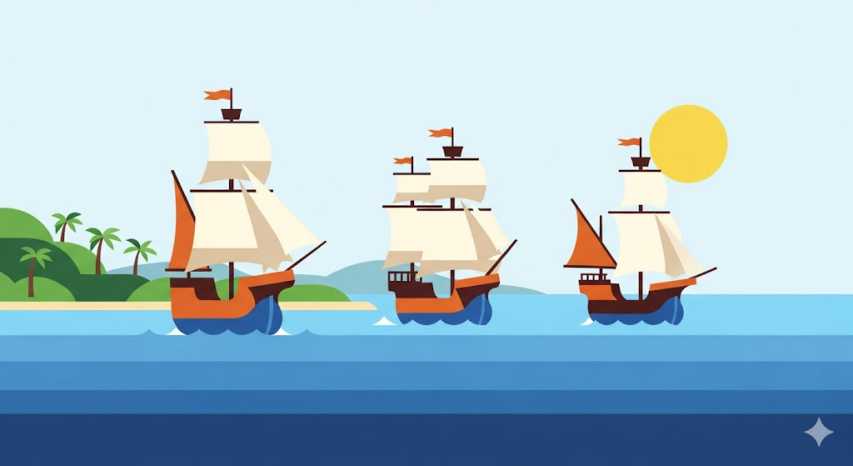Columbus Day, celebrated on the second Monday in October, is a federal holiday in the United States that commemorates the arrival of Christopher Columbus in the Americas on October 12, 1492. While it's a day of remembrance for many, especially those of Italian-American heritage who see it as a celebration of their cultural contribution to the country, the holiday has become increasingly controversial. This article delves into the history of Columbus Day, the reasons behind its establishment, and the growing movement to replace it with Indigenous Peoples' Day.
The Historical Context: The Age of Exploration
To understand Columbus Day, we must first look at the historical period in which Christopher Columbus lived. The late 15th century was a time of intense global change, known as the Age of Exploration. European nations were competing to find new trade routes to Asia. Sailing west from Europe was a radical idea at the time, and Columbus, an Italian explorer, was convinced it was possible. After years of seeking financial backing, he secured support from the Spanish monarchs, King Ferdinand II and Queen Isabella I.
On August 3, 1492, Columbus set sail with three ships—the Niña, the Pinta, and the Santa María. On October 12, he and his crew landed on an island in the Bahamas. This voyage is widely regarded as the first significant European contact with the Americas. While Columbus didn't "discover" a continent already inhabited by millions of people, his journey marked the beginning of a new era of transatlantic exchange, which profoundly changed the course of history for both the Old and New Worlds.
How Columbus Day Became a Federal Holiday
The first celebrations of Columbus’s landing date back to the late 18th century, but the holiday didn't gain widespread recognition until much later. The first official celebration was in 1792, organized by the Tammany Society in New York to commemorate the 300th anniversary of his voyage.
The push to make Columbus Day a national holiday began in earnest in the late 19th and early 20th centuries, primarily driven by Italian-Americans. At the time, Italian immigrants faced significant discrimination and prejudice. The holiday provided a way for them to assert their heritage and stake a claim in the American story, celebrating a figure who was a celebrated explorer of Italian origin. This movement gained political traction, and in 1937, President Franklin D. Roosevelt officially designated the second Monday in October as Columbus Day, a federal holiday.
The holiday was also intended to foster a sense of national pride and unity. It was meant to celebrate the spirit of exploration and the founding of the American nation. However, this narrative has been challenged in recent decades.
The Controversy and the Rise of Indigenous Peoples' Day
Over time, the celebration of Columbus Day has become a source of heated debate. Critics argue that honoring Columbus ignores the devastating impact his arrival had on the indigenous populations of the Americas. They point to the violence, disease, and exploitation that followed, leading to the decimation of native cultures and communities.
Historians and activists highlight that Columbus's legacy is intertwined with slavery and brutal treatment of the native Taino people he encountered. For many, celebrating Columbus is seen as celebrating colonialism and the genocide of indigenous peoples.
In response to these criticisms, a new movement emerged: to replace Columbus Day with Indigenous Peoples' Day. This alternative holiday aims to honor the resilience, history, and contributions of Native Americans. The idea first gained momentum in Berkeley, California, which was the first city to officially celebrate Indigenous Peoples' Day in 1992. Since then, the movement has grown significantly.
Today, many states and cities across the United States have either replaced Columbus Day with Indigenous Peoples' Day or recognize both holidays. These include states like Alaska, Hawaii, Oregon, and South Dakota, as well as a growing number of major cities. This shift reflects a broader societal effort to acknowledge and reconcile with the complex and often painful aspects of American history.
A Day of Reflection and Reevaluation
Columbus Day remains a federal holiday, but its meaning is in flux. For some, it is a day of Italian-American heritage and pride. For others, it is a painful reminder of colonization and a day of mourning. The ongoing debate surrounding the holiday is a crucial part of our national conversation about history, identity, and who we choose to honor. It's a day to reflect not just on the past but also on our values as a society.
Whether you observe Columbus Day, Indigenous Peoples' Day, or both, the second Monday in October is an important opportunity to learn about the diverse and complex history of the Americas. It encourages us to look beyond a single narrative and appreciate the full story of the people who shaped this land, from its ancient inhabitants to the explorers and immigrants who arrived later.



